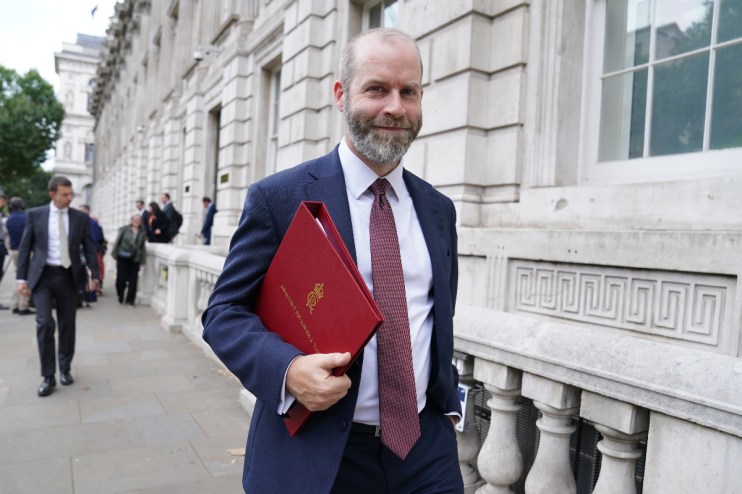‘Open for business’: Ministers head to Gulf states in bid to boost UK trade links

Senior ministers are heading to the Gulf states for talks on boosting the UK’s economy via expanding trade links with the region and attracting international investment.
Business secretary Jonathan Reynolds and trade minister Douglas Alexander are flying to Riyadh, Saudi Arabia, on their first joint international visit since the election, with Alexander then set to travel onto Oman to meet the commerce minister and UK firms trading there.
They are also eager to progress discussions on a free trade agreement (FTA) with the Gulf Co-operation Council (GCC), comprising Bahrain, Kuwait, Oman, Qatar, Saudi Arabia, and the United Arab Emirates (UAE), which could boost the UK economy by £1.6bn.
And the ministers are expected to emphasise to GCC leaders that securing the deal is a top priority for the UK, the Department for Business and Trade has said, with the UK’s current trade relationship with the Middle Eastern group of nations already worth £57bn.
In July, the government confirmed it planned to continue progressing trade talks opened by the Conservatives, including with the GCC bloc, India, Switzerland and South Korea. This came despite ongoing concerns around human rights issues in the Gulf region.
Reynolds said: “Economic growth is this government’s driving mission and boosting trade and investment with some of the world’s biggest economies is crucial to that.
“I want to see a high-quality trade deal that supports jobs, helps UK companies sell their products to the region and increases choice for consumers.”
The government is “excited about the opportunities this vibrant region has to offer”, Alexander added.
“We want our trading partners in the Gulf and around the world to know the UK is open for business and keen to negotiate trade deals that help businesses across sectors to prosper.”
While the bid to back Britain as a top international investment destination comes just weeks ahead of next month’s International Investment Summit hosted by the UK government.
Prior to the 14 October summit, Reynolds and Alexander are expected to highlight the UK’s world-leading expertise in technology, life sciences, financial services and renewable energy.
GCC investment in the UK amounted to £19bn in 2021, according to the government, and a new trade deal could see the figure increasing even higher.
Marco Forgione, director-general of the Chartered Institute of Export & International Trade (CIEIT), said the fact ministers were starting trade talks so quickly was “extremely positive”.
“International trade is a force for good,” he said. “Making international trade easier and helping more UK businesses expand into international markets is central to getting growth into the economy. There is a huge demand for UK products and services in the GCC.”
And Adam Gagen, global head of government affairs at Revolut, suggested a FTA with the GCC could be a “potential game changer for fintechs” and “serve to supercharge growth”.
But charity Amnesty International UK has previously warned of “huge human rights concerns across the Gulf countries”.
Foreign policy adviser Polly Truscott told Politico that UK trade negotiations must “address head on” issues such as “drastic curbs on free speech, institutional discrimination against women and LGBTQ+ people, widespread labour exploitation and bans on trade unions”.
She stressed: “A UK-Gulf trade deal must include detailed impact assessments to ensure the deal doesn’t undermine human rights or come with other adverse impacts, including on key issues like the rights of migrant workers, the safety of human rights defenders and respect for groups who’ve suffered discrimination and marginalisation.”
